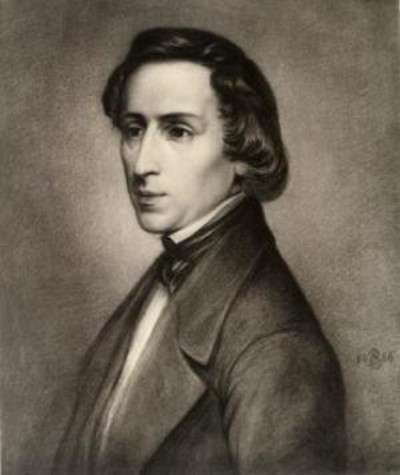
Delicate, refined, passionate, emotive, romantic. Many music lovers consider Chopin's piano works to be the very greatest of all music written for the instrument. It's certainly distinctive: you can listen to an awful lot of music from the same period and be in no doubt whatsoever when you hear Chopin.
A large part of the effect comes from Chopin's talent for melody. In every generation, just a few composers have the talent for writing tune after tune that sticks in your memory as soon as you've heard it, and Chopin was certainly one of them. But what makes him special is his ability to wrap intricate tracery around his melodies and to surprise you repeatedly with shifts of key and rhythm while always putting across a feeling that every note is in the right place. Perhaps the best descriptions come from the Paris Revue Musicale, which described the 22-year old Chopin as a young man who had found “an extravagance of original ideas that are unexampled anywhere” and from Robert Schumann, who found in his music the sound of “cannon concealed amid blossoms”.
Chopin was a less versatile composer than most of the greats with whom he is frequently and fairly bracketed. There is a handful of chamber pieces and orchestral works and a few songs, none of them massively distinguished. Through and through, Chopin was a salon composer: he wrote piano music to be played in the living rooms of the rich. And within that compass, he was matchless.
Part of Chopin's unique sound comes from a unique background. Born Fryderyk Franciszek to a Frenchman settled in Poland, he became an ardent Polish nationalist Polishness and is treated as one of the great men of Polish history. By the time he was eleven, the young Chopin was already acclaimed as a great pianist and had played for the Tsar of Russia at the opening of the Polish parliament; at twenty, he set off to make his fortune in Western Europe. Just 27 days after he left, the Poles rebelled against the rule of Russia in the November uprising, a rebellion which was crushed the following year, leaving Chopin distraught and providing the creative impulse for one of his most famous works, the “Revolutionary” Etude (Op.10 no.12). He suffered from ill health throughout his life.
Chopin settled in Paris, where he became “Frédéric-François”, the name by which he is best known in English-speaking countries today, although he never learnt French perfectly. He enjoyed great concert success, but became aware that his style of playing was not suited to larger concert halls, preferring to play at his home or in salons, often on his much beloved Pleyel pianos.
In 1848, Chopin’s life was transformed by revolution once again, as the French nobility who formed his clientèle fled Paris, leaving him without income and in sharply deteriorated health. His last concert was in London in November that year: an ill-fated benefit concert for Polish refugees (no-one knows what was played since he could not be heard above the chatter of the social occasion). He died a year later in Paris, with his sister Ludwika, who had given him his first piano lessons, at his bedside.
Every lover of Chopin has their own favourite works and their own favourite performers: his music seems to lend itself to an extraordinary variety of performance styles, with endless argument possible about tempos, rubato, accenting and many other features of a performance.
Famous interpreters of the past include Artur Rubinstein, Vladimir Horowitz, Claudio Arrau and my personal favourite, the Romanian Dinu Lipatti. A “must have” play-list would include the Etudes, the Waltzes, the Preludes, the Ballades (a form that Chopin invented), and several of the Polonaises and Mazurkas. Also unforgettable are the Fantaisie-Impromptu in C sharp minor, Op. posth. 66, the Barcarolle in F sharp (a transcendent, lilting Venetian boating song) and the B flat minor Piano Sonata with its famous funeral march whose glorious gift is to uplift one’s spirits in the face of death.
David Karlin
18th December 2009
| Geburtsjahr | 1810 |
| Sterbejahr | 1849 |
| Nationalität | Polen |
| Epoche | Romantik |


